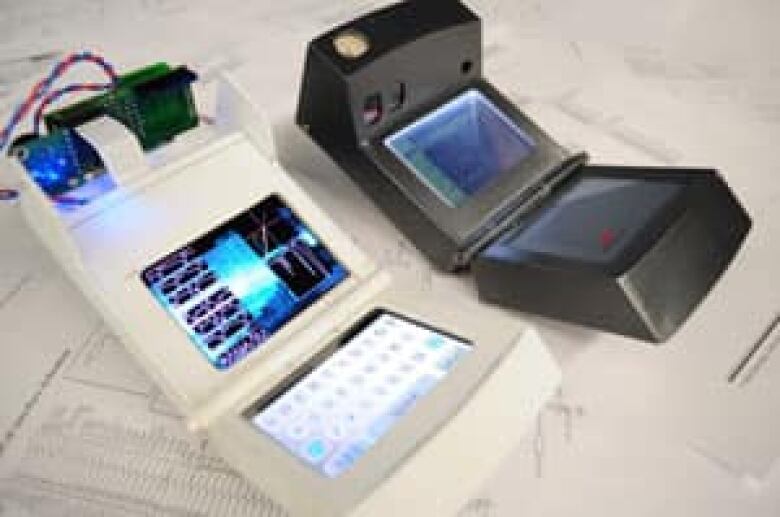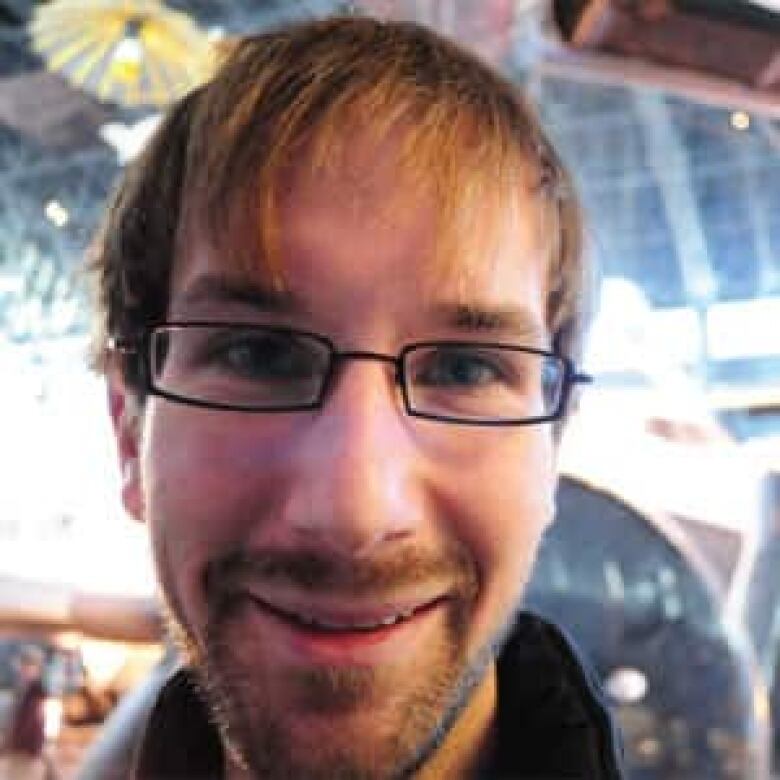'Tricorder' project seeks helping hands
The Canadian creator of a Star Trek-inspired device is hopingthe next generation of his "tricorder" will get a boost from other enthusiasts and experts.
Peter Jansen, 29,developed his prototype tricorderseach equipped with a wide array of sensors that measure things such as temperature, humidity, GPS co-ordinates andmagnetic fieldsas a hobby while completing his Ph.D. in cognitive science at McMaster University, in Hamilton, Ont.
Less than a month ago, he recently relaunched his labour of love as an open-source project, in the hopes that attracting some additional expertise will help him improve the device.
He said he's been "positively overwhelmed" with the public response since his website went live. Within hours, his friends had spread the news far and wide.

Jansen, who is originally from Cambridge, Ont., hopes the tricorder open-source project will attract the attention of people with special skills and expertise, such as those who know more about radiation sensors or graphical user interfaces than he does.
"The goal of the website was really to get people very, very excited about the project and help build a community," he said.
Jansen said he had been dreaming about the project for years before getting it off the ground.
"I sort of always wanted a tricorder, since I was a kid watching Star Trek with my dad," he said.
On the long-running TV series and its spin-offs, tricorders were used both to scan environmental conditions, such as the presence of certain substances, and in medical diagnostics.

"Sensors had become small enough and inexpensive enough that it was really possible to build an instrument that had a diverse array of sensors on it."
Jansen said his tricorder is a general tool with lots of functions, like a Swiss Army knife, but unlikemore advancedStar Trek versions, it can't detect neutron fields or radiation from supernovas.
He is hoping future versions will have more graphical features, such as thermal imaging of an entire scene instead of just temperature readings. He also wants to enable wirelesscommunication and co-operation with devices such as smartphones. So far, the device focuses on environmental measurements.
In January, the X Prize Foundation launched acontest to develop a medical tricorderthat can diagnose 15 diseases in 30 people over three days, offering a $10-million prize to the winner.
Jansen thinks that will be a trickier tricorder to develop because medical diagnostic sensors are so much more expensive than the sensors he has been using.
In the meantime, he has already created his own contest to solicit ideas about what other people would do with a tricorder.
The winners received tricorder parts that he hopes they will use to make their ideas a reality.
"I'm very much hoping to make it like a living project," he said, "so that community will end up developing it further and making their own modifications and really taking part in the development."












_(720p).jpg)


 OFFICIAL HD MUSIC VIDEO.jpg)
.jpg)



























































































